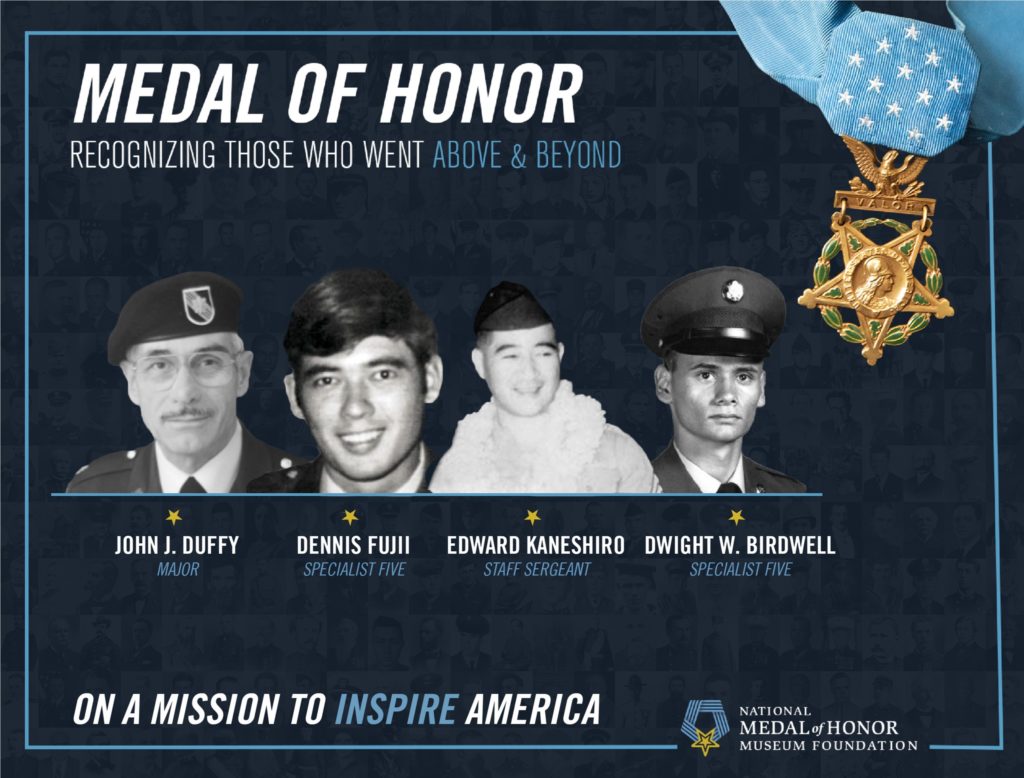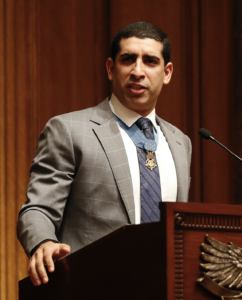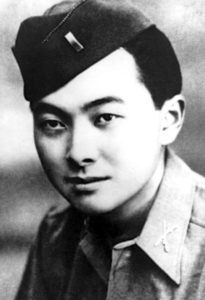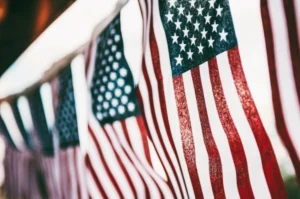President Joseph R. Biden awarded the Medal of Honor on July 5, 2022, to four recipients who served their country above and beyond the call of duty during the Vietnam War. One of the awards is posthumous, and the other three recipients attended the award ceremony in person. These awards being the total number of individual Medal of Honor recipients since the Civil War to 3,515, and the total number of living recipients to sixty-six.
Specialist Five Dwight W. Birdwell
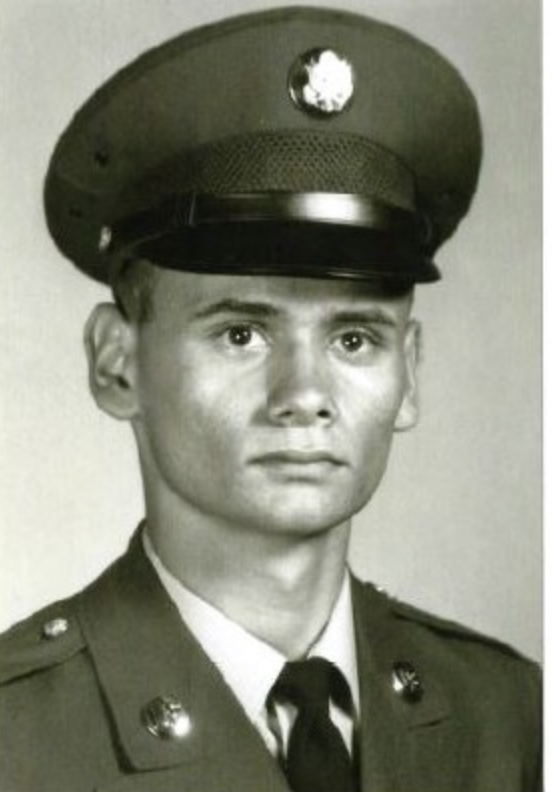
Dwight W. Birdwell was born in Amarillo, Texas, on Jan. 19, 1948, but moved to the town of Bell in Adair County, Oklahoma, when he was three years old. Graduating from high school in 1966, he joined the U.S. Army and eventually attained the rank of Specialist 5 in Troop C, 3rd Squadron, 4th Cavalry, 25th Infantry Division. He arrived in Vietnam in August 1967 and entered action during the Tet Offensive in January 1968.
On January 31, 1968, according to Birdwell’s official citation, “a large enemy element initiated an assault on the Tan Son Nhut Airbase near Saigon. They disabled or destroyed many of the unit’s vehicles and incapacitated Specialist Five Birdwell’s tank commander. Under heavy enemy small-arms fire, Specialist Five Birdwell moved the tank commander to safety and fired the tank’s weapons at the enemy force. Afterwards, he dismounted and continued fighting until wounded in his face and torso by enemy fire. He refused evacuation and led a small group of defenders to disrupt the enemy assault until reinforcements arrived. He then aided in evacuating the wounded until he was ordered to seek attention for his own wounds.”
Birdwell received a Silver Star for this action, one of two that he would receive for his combat service along with two Purple Hearts. Although the initial report of his action on Jan. 31, 1968 did not fully attest to his brave conduct, Birdwell was not somebody “to beat his own drum” and so he asked for no further recognition. Memories of the action would stay with him, however. “Every day, sometimes multiple times of day, I think about it,” he recently recalled. “Could I have done it better, should I have done this, should I have done that – that sort of thing. Somebody a few years ago asked when did you leave Vietnam? I told them, last night. Things just stay with you.”
Honorably discharged on December 29, 1968, Birdwell returned to Oklahoma and eventually earned a law degree. A citizen of the Cherokee Nation, he served on the Nation’s Supreme Court from 1987-1999 and continues to practice law in Oklahoma City.
Birdwell’s Medal of Honor award marks the culmination of a forty-year effort undertaken by men who served with him in Vietnam and witnessed his acts of valor. As for Birdwell, “I consider this not an honor for myself, but certainly for my creator, the men who served with me and all of those men who came to me as a child, Cherokee men who had served in Korea and served in World War II or even World I and talked about their experiences and encouraged me to serve and essentially gave me the idea and belief that I had to do it to carry on a tradition of the Cherokee Nation. It was up to me serve if called. I was told as a serviceman, don’t dare bring shame to the Cherokee people, and that was always on my mind, especially that day thinking, ‘Am I doing enough? Am I doing what’s expected of me?’”
Major John J. Duffy
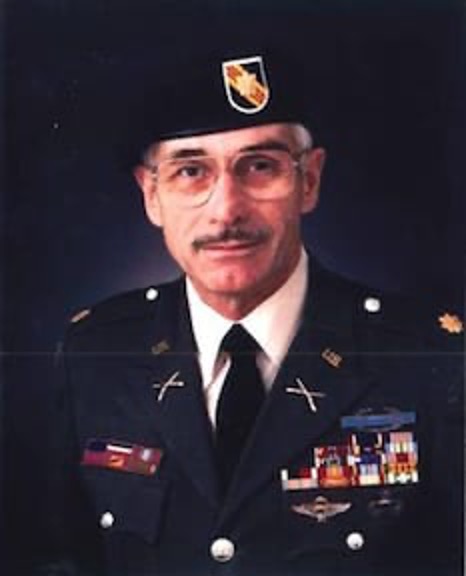
John J. Duffy was born in New York City on Mar. 16, 1938. He left high school and enlisted in the U.S. Army shortly after turning seventeen years old, hoping to become a paratrooper. After serving several years in airborne service, Duffy graduated from Officer Candidate School at Fort Benning, Georgia, in 1963 and became a company commander with the Berlin Brigade in Germany. He was first deployed to Vietnam at a Special Forces camp close to the North Vietnamese border in January 1967. Duffy would serve three combat tours of duty in Vietnam, and a total of over 100 combat missions.
On April 14-15, 1972, Duffy, now a major, was serving as senior advisor to the 11th Airborne Battalion, 2nd Brigade, Airborne Division, Army of the Republic of Vietnam. His official Medal of Honor citation reads: “Two days earlier, the commander of the 11th Airborne Battalion had been killed, the battalion command post destroyed, and Major Duffy was twice wounded. He refused to be evacuated. In the morning hours of April 14, after a failed effort to establish a landing zone for resupply aircraft, he moved close to enemy anti-aircraft positions to call in airstrikes and was wounded again, but still refused evacuation. In the late afternoon, the enemy began a ground assault from all sides, and Major Duffy moved from position to position to adjust fire, spot targets for artillery and direct gunship fire. In the early morning of April 15, after an enemy ambush, he led evacuees, many of whom were seriously wounded, to an evacuation area, where he directed gunship fire on enemy positions and marked a landing zone for the helicopters. Only after ensuring all evacuees were aboard, did he board as well, assisting a wounded friendly foreign soldier and administering aid to a wounded helicopter door gunner.”
Duffy remained on active service in the U.S. Army until May 31, 1977, by which time he had received a total of twenty-nine awards and decorations for valor, including four Bronze Stars, eight Purple Hearts, and a Distinguished Service Cross for the action of April 14-15, eventually to be upgraded to a Medal of Honor. After the war, Duffy ran an investment firm and a publishing company. He also authored books of poetry about his wartime service, and was nominated for a Pulitzer Prize. He lives in Santa Cruz, California.
Specialist Five Dennis M. Fujii
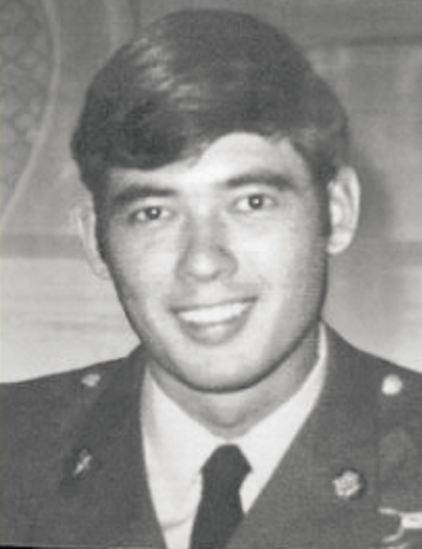
Dennis M. Fujii of Hanapepe, Hawaii, was twenty-one years old and serving as a Specialist Five crew chief on a UH-1 Huey helicopter performing “Dustoff” evacuation missions in Laos and South Vietnam, when his Medal of Honor action took place on Feb. 18-22, 1971. His unit, the 237th Medical Detachment, was sent to fire support base Ranger North, on a hilltop just inside Laos, where it was supposed to operate in support of an Army of Republic of Vietnam, or ARVN, mission against the Ho Chi Minh Trail.
Fujii’s detachment was told that Ranger North offered a safe landing zone, but that was not the case. “As soon as we crossed the border into Laos the ground fire became more intense than anything I had experienced,” he remembered. “You could hear and feel the rounds hitting the bottom of the aircraft and then the blades started whistling. At about 3 or 4 kliks in we started receiving actual anti-aircraft fire designed to shoot down jets and we were in helicopters. I could see a lot of helicopter wrecks on the ground.” As his airship came into land, “you could see the NVA soldiers all around the firebase. They weren’t trying to hide, they were everywhere. I don’t know how we got in, but we did, and as soon as we touched down the mortar rounds started landing all over the place.” Just as the helicopter was loaded with wounded, incoming rounds damaged it beyond repair, leaving the medevac team stranded along with the two helicopter pilots, who had been severely wounded.
Another Dustoff helicopter piloted by Maj. James T. Newman braved the heavy fire to rescue the stranded crew, but Fujii remained behind, waving off the helicopter so that it could reach safety. Fujii’s citation continues: “During that night and the next day, although wounded, he administered first aid to allied casualties. On the night of February 19, he called in American helicopter gunships to assist in repelling an enemy attack. For more than 17 hours, he repeatedly exposed himself to hostile fire as he left the security of his entrenchment to better observe enemy troop positions and to direct air strikes against them until an American helicopter could attempt to airlift him from the area.”
Fujii received a Silver Star for his conduct during this action, and the award was later upgraded to a Distinguished Service Cross. Recovering from his injuries and completing his tour of duty, he joined the Army Reserve and returned Hawaii. His upgrade to the Medal of Honor would follow just over fifty years after his original action.
Staff Sergeant Edward N. Kaneshiro
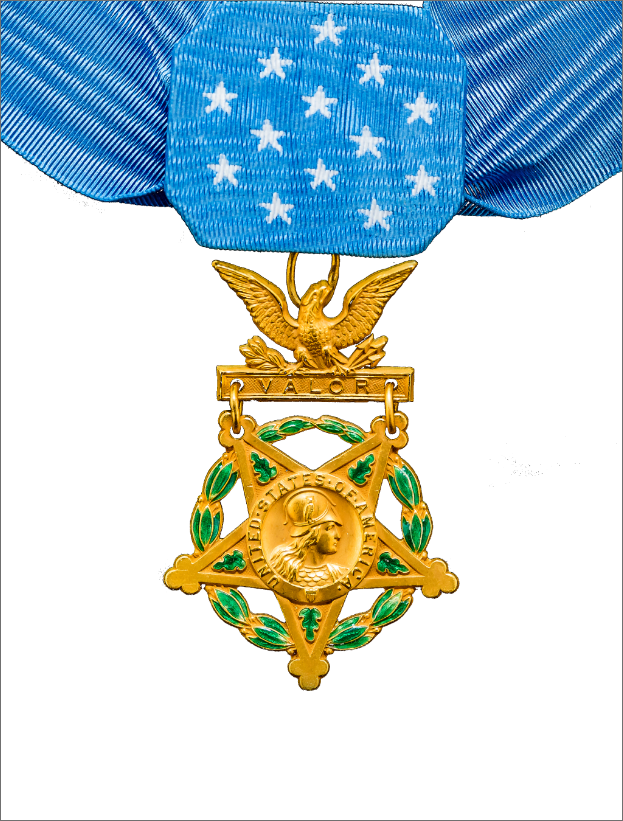
Edward N. Kaneshiro was born in Honolulu, Hawaii, on July 22, 1928. Enlisting in the U.S. Army, he was deployed to Vietnam in July 1966. On Dec. 1, 1966, he was serving as a staff sergeant and infantry squad leader with Troop C, 1st Squadron, 9th Cavalry, 1st Cavalry Division, near Phu Huu 2, Kim Son Valley, Republic of Vietnam. His citation continues: “Staff Sergeant Kaneshiro and his team entered the village of Phu Huu 2 while on a search and destroy mission and were attacked by North Vietnamese. Staff Sergeant Kaneshiro destroyed one enemy group with rifle fire and two others with grenades, which enabled the orderly extrication and reorganization of the platoon and ultimately led to a successful withdrawal from the village.” Continuing in service, Kaneshiro went missing in action and was declared dead from small arms fire during an action on March 6, 1967.
